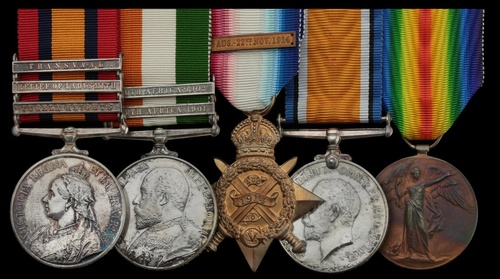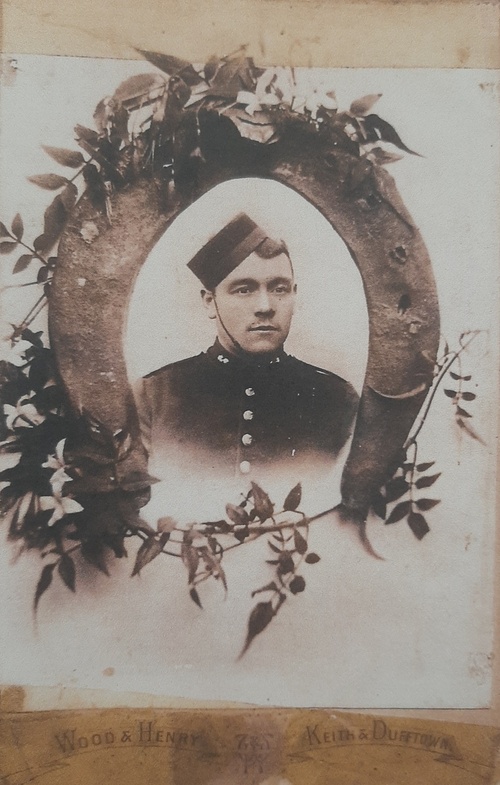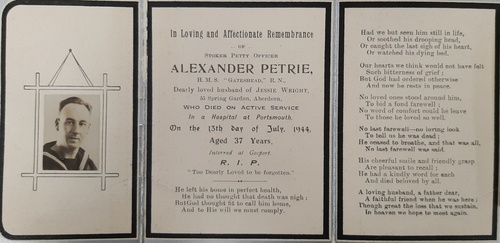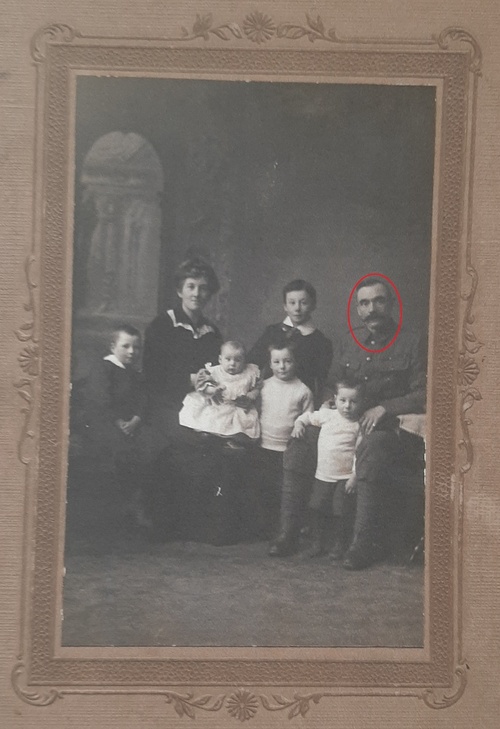Auction: 22133 - Orders, Decorations and Medals - e-Auction
Lot: 428
Sold by Order of a Direct Descendant
A well-documented campaign group of five awarded to Gunner J. G. Petrie, Royal Army Medical Corps, late Royal Field Artillery, a Boer War and Great War veteran whose serve extended to standing fire-watch in the Second World War when 91 years of age
Queen's South Africa 1899-1902, 3 clasps Tugela Heights, Relief of Ladysmith, Transvaal (17246 Gnr J Petrie RFA); King's South Africa 1901-1902, 2 clasps, South Africa 1901, South Africa 1902 (17246 Gnr J Petrie RFA); 1914 Star (8563 Pte J Petrie RAMC), with clasp and Rosette; British War and Victory Medals (8563 Pte J Petrie RAMC), all awards official late replacements, good very fine (5)
All medals are official replacements, family tradition holds that the originals were given to the recipient's grandchild and they were lost in the 1930s.
John George Petrie was born at Dufftown, Banffshire, Scotland on 21 December 1877 and enlisted at Aberdeen on 19 November 1896 with the 19th Battery, Royal Field Artillery.
This unit arrived at South Africa for service in the Boer War on 1 January 1900 and was attached to Charles Warren's V Division. In action by the end of the month they were in action at Venter's Spruit and Spion Kop and later again at Vaal Kranz in February. They were alongside the 2nd Battalion (Queen's), Royal West Surrey Regiment at Colenso and Pieter's Hill joining the Drakensburg Defence Force they remained around Newcastle for the rest of the year. Later seeing column work in 1901 in Transvaal with General Buller commending them in his final despatch.
Petrie was posted to the Army Reserve after the war and was discharged from Section 'D' on 18 November 1912, having become time expired. Returning to the Colours he was posted to the Royal Army Medical Corps as a Private and entered the war on 7 October 1914. Petrie was stationed with the 22nd Field Ambulance, part of the 7th Division as part of the British Force intended to defend Antwerp. However as the Belgian Army withdrew, and the Royal Marine forces defending the city also fell back, the Division withdrew to Ypres, being the first troops to reach the city, seeing action there during the Race to the Sea.
Petrie was discharged on 23 March 1919 with the rank of Acting Serjeant, he was later to be awarded a pension having contracted Pulmonary Fibrosis as a result of being gassed. During the Second World War he again returned to see what service a 91-year-old could, acting as a fire watcher at Aberdeen Harbour. All four of Petrie's sons saw service with one Alexander Petrie being killed on 13 July 1944. Serving as an Engineman aboard the minesweeper H.M.S. Gateshead he was crushed by engine room machinery aboard her when she was mined off the Arromanches.
Sold together with an archive comprising:
(i)
A typed summary of the recipient's career.
(ii)
Two copied photographs.
(iii)
Original Army Reserve discharge form dated 1912.
(iv)
Copied medal rolls for the Q.S.A. and K.S.A.
(v)
Copied M.I.C.
(vi)
Original certificate of demobilisation dated 23 March 1919,
(vii)
Ministry of Pensions, Notification of Final Award.
(viii)
A Memorial Card for Stoker Petty Officer Alexander Petrie and a file of copied and typed research relating to his life and death in action aboard H.M.S. Gateshead.
Subject to 20% VAT on Buyer’s Premium. For more information please view Terms and Conditions for Buyers.
Sold for
£250
Starting price
£100











